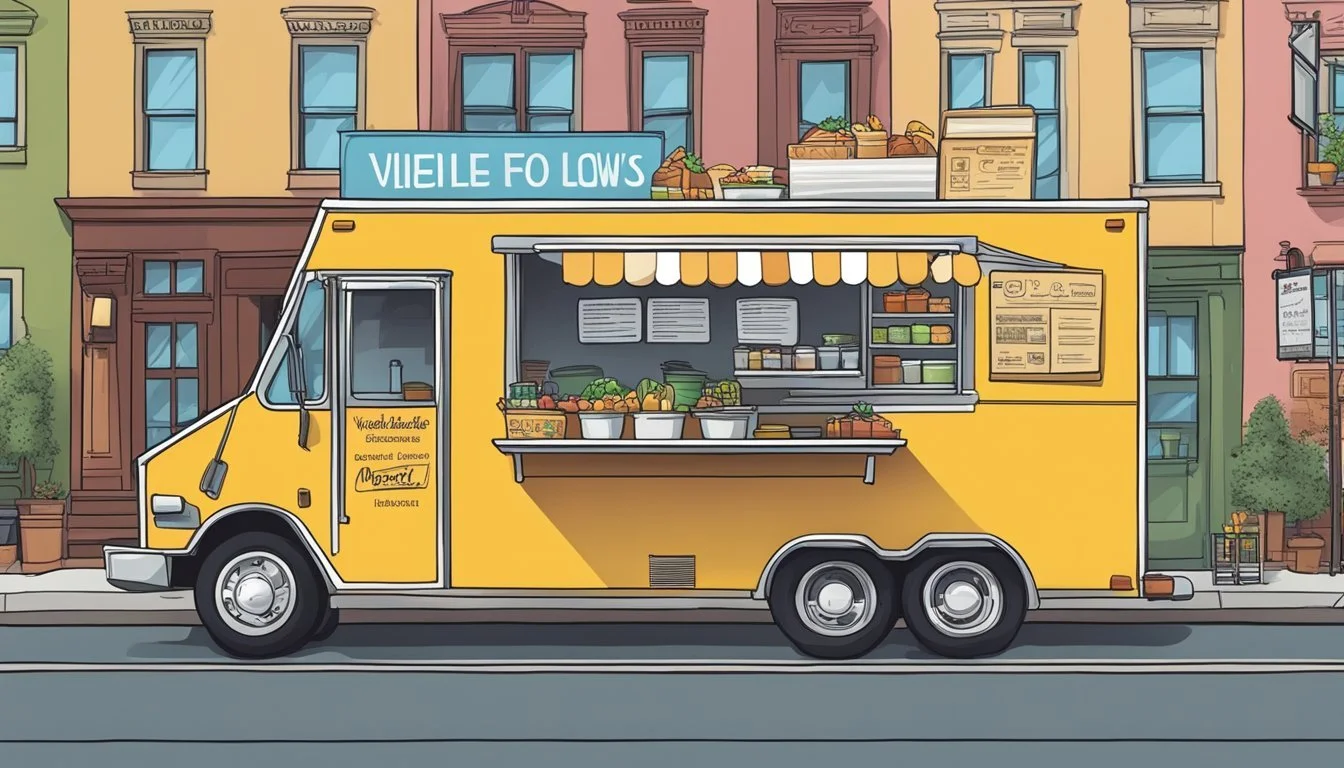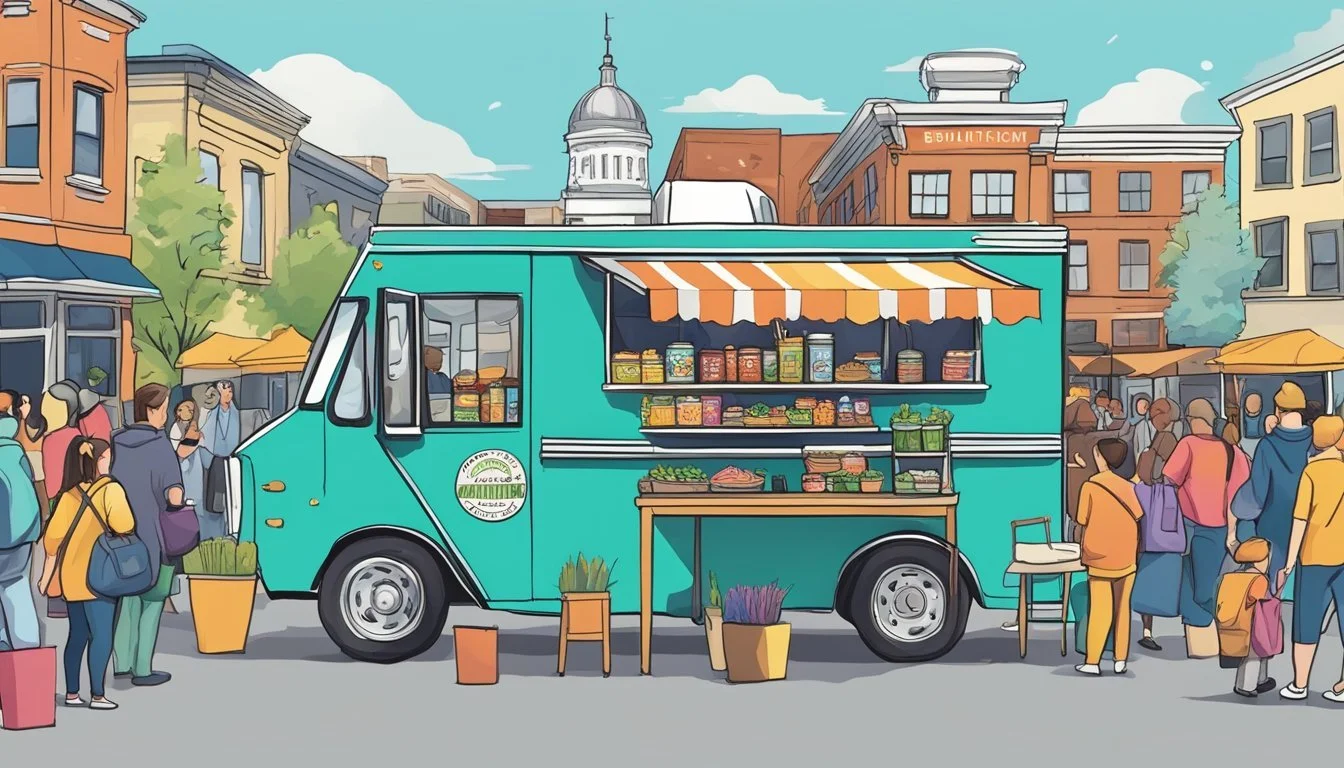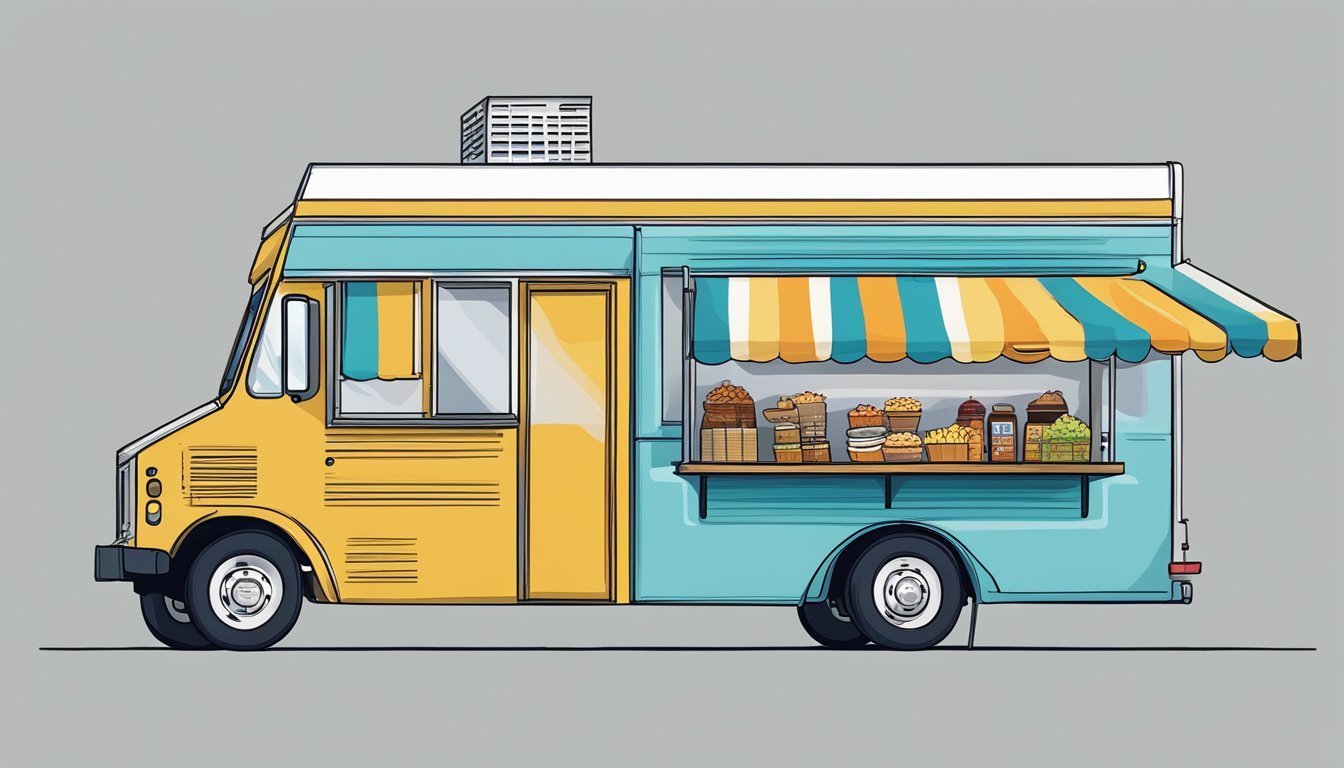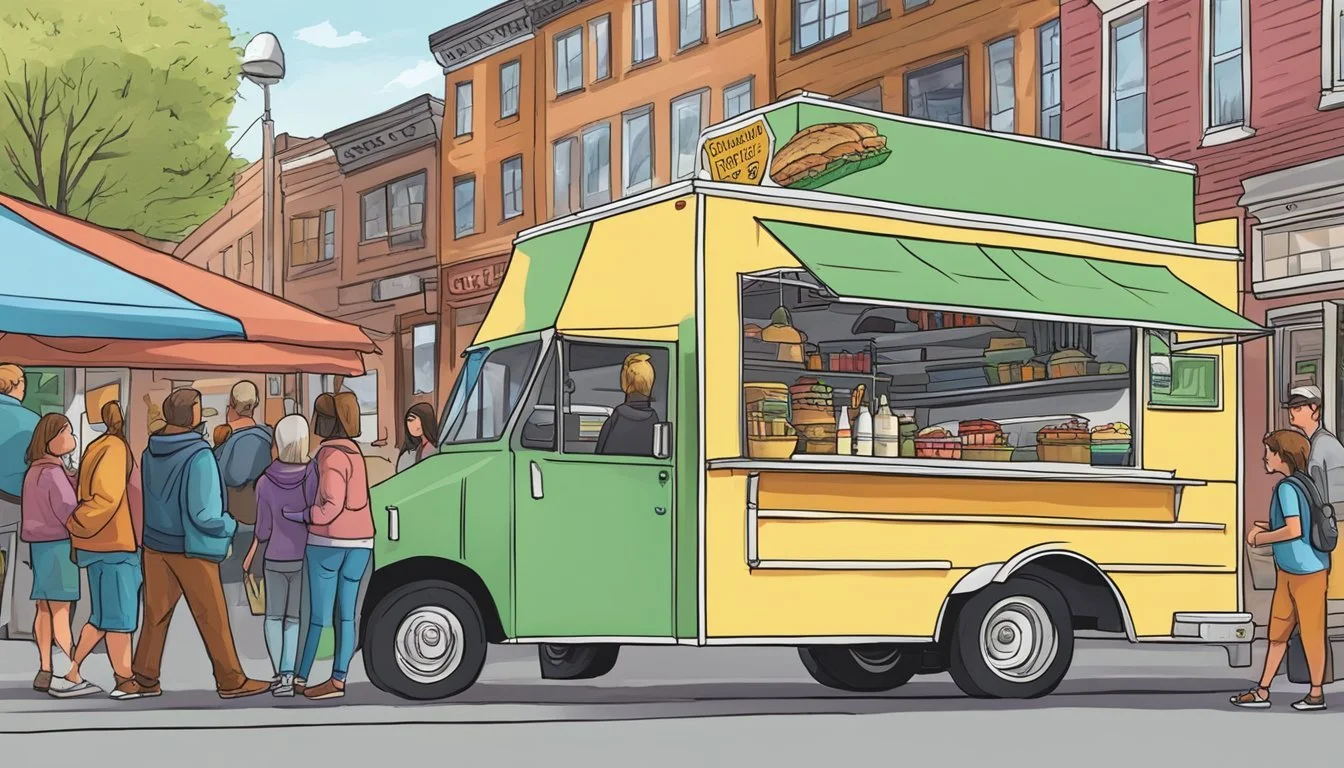Food Truck Laws in Vermont
Navigating Regulations and Permits
Vermont's vibrant food scene is uniquely complemented by the presence of food trucks, serving up a variety of cuisines along bustling streets and at local events. To operate a food truck in the Green Mountain State involves navigating a host of regulations and requirements designed to ensure public health and safety. These rules cover a broad spectrum of operational aspects, from food preparation to waste management, and are enforced to maintain a high standard of food service across the state.
The state mandates that every food truck obtain proper licensing, which includes a Business License and a Mobile Food Facility Permit. Additionally, all food truck operators must adhere to the Vermont Health Regulations, which dictate the proper handling, storage, and preparation of food. Compliance with these regulations is crucial not only to safeguard consumer health but also to ensure the longevity and success of the food truck business.
Understanding the intricacies of such regulations may be daunting for aspiring and existing food truck owners. Nevertheless, with thorough preparation, and by securing the necessary permits like Employee Health Permits and Seller's Permits, entrepreneurs can successfully navigate the food truck ecosystem in Vermont. As such, these laws and guidelines serve as a foundational framework that supports the dynamic and diverse food truck industry within the state.
Establishing Your Food Truck Business
When setting up a food truck business in Vermont, the first step is selecting an appetizing business name and determining the business structure, such as an LLC or a partnership. A strategic business plan is crucial, outlining the vision and operational details of the company.
Next, obtaining an Employer Identification Number (EIN) from the IRS is necessary for tax purposes. This step is essential for all business types, whether a sole proprietorship or a more formal structure like an LLC.
A team with defined roles can enhance the operations of a food truck. Include individuals who possess culinary skills, customer service experience, and management capabilities. They can help refine the menu, select quality ingredients, and contribute to a successful operation.
Lastly, compliance with Vermont's regulations requires obtaining proper licenses and permits. Research and fulfill all state-specific requirements to operate legally and safely.
Decide Business Name and Structure
Create a Comprehensive Business Plan
Apply for an EIN
Assemble a Dedicated Team
Craft an Appealing Menu
Understand and Acquire Necessary Permits
The climate for food trucks in Vermont is ripe with opportunity for those who navigate the terrain with knowledge and strategy.
Legal Requirements and Licensing
When launching a food truck in Vermont, it's essential to navigate a variety of legal requirements and secure the necessary licensing. Compliance with these regulations is crucial for the successful operation of a mobile food business.
Obtaining Proper Licenses and Permits
To operate a food truck in Vermont, operators must acquire specific licenses and permits. Firstly, a Mobile Food Facility Permit is required, which ensures adherence to food safety guidelines set forth by the Vermont Department of Health. This permit is a testament to a food truck's commitment to public health standards. For those dealing with specialty services, such as a bakery or seafood vending, additional permits like a zoning permit for the location and a Health Department business license may be required. These licenses consider the particularities of food service establishments and prepackaged food sales.
Registration and Taxation
In addition to the health-based licenses, food truck operators must also complete necessary registration and stay current on sales tax obligations. This includes registering the business with the Vermont Secretary of State and securing a Seller's Permit from the Vermont Department of Taxes. This permit allows the collection of sales tax on food and is mandated for food service establishments, including limited operation vendors.
Insurance Policies
Lastly, carrying adequate liability insurance is crucial for food truck operators. Insurance policies should cover a range of potential liabilities, safeguarding the business in case of unforeseen accidents or food-related issues. Food trucks, like any other mobile food business, are exposed to unique risks, making a comprehensive insurance policy an indispensable layer of protection.
Vehicle and Equipment Standards
When launching a food truck in Vermont, operators must ensure that their vehicle and all kitchen equipment comply with stringent standards. These requirements are put in place for safety, efficiency, and to pass necessary inspections.
Choosing the Right Vehicle
In Vermont, food truck operators need a vehicle that not only accommodates the necessary equipment but also adheres to fire safety and health standards. The vehicle must pass an inspection that evaluates its safety and suitability for cooking operations. Essential to this process is the installation of fire suppression systems, which must be inspected regularly to maintain compliance and ensure fire safety.
Kitchen Equipment and Supplies
All cooking equipment within a Vermont food truck must meet specific temperature control guidelines to ensure food safety. Equipment must be capable of:
Keeping hot foods at or above 140°F
Keeping cold foods at or below 40°F
Regular temperature checks are critical to pass health inspections. Supplies and equipment include:
Grills and Stoves: Must be installed with proper ventilation systems.
Refrigeration Units: Critical for perishable items' storage.
Sinks: A food truck must possess at least one handwashing sink and a three-compartment sink for dishwashing, with an additional 30 gallons of fresh water and 35 gallons of wastewater capacity.
Operators are obliged to equip themselves with knowledge on sanitation requirements and prepare for periodic health inspections to maintain proper food safety standards on their mobile food establishment.
Health and Safety Compliance
Adherence to health and safety regulations is a critical component for food trucks operating in Vermont. These mobile food entities are subject to rigorous standards to prevent foodborne illnesses and ensure public safety.
Protocols for Safe Food Handling
Food truck operators must implement stringent food safety practices. According to the Vermont Department of Health, staff must be adequately trained in proper food handling techniques. This includes:
Regular handwashing
Wearing gloves when necessary
Keeping raw and cooked foods separate
Monitoring food temperatures
Sanitizing surfaces and equipment
Additionally, they should have policies in place for employee health, preventing anyone exhibiting signs of illness from handling food.
Regular Health Inspections
Food trucks in Vermont are subject to regular inspections by the health department to ensure compliance with health and safety regulations. Inspectors assess:
The overall cleanliness of the food truck
The condition of food storage facilities
The correct functionality of cooking equipment
Adherence to food safety protocols
The frequency of these inspections varies, but the aim is to maintain consistent standards that protect the customers and reduce the risk of foodborne illness. Any lodging establishment associated with the food service operation must also comply with these health inspections.
Financial Planning and Management
Successful food truck operations in Vermont hinge on accurate financial planning and management. This encompasses a comprehensive understanding of startup costs, funding strategies, ongoing resource management, and projecting profit margins.
Calculating Startup Costs and Funding
To launch a food truck in Vermont, entrepreneurs must calculate initial expenses and secure adequate funding. Essential startup costs include, but are not limited to:
Business License: Securing a food truck license is a legal requirement.
Mobile Food Facility Permit: A permit critical for food truck operation in public spaces.
Equipment Purchase: An investment in kitchen equipment adapted for mobile use.
Inventory: Initial purchase of food supplies.
Insurance: Coverage can range from vehicle insurance to liability coverage.
Potential funding avenues include self-financing, business loans, investors, or crowdfunding initiatives. It's imperative that food truck owners in Vermont understand these costs and funding options to pave the way for sustainable business operations.
Estimating Profit Margins
Food truck owners should estimate profit margins to ensure financial viability. This requires:
Assessment of Fixed Costs: License fees, permits, and insurance premiums.
Variable Costs: Inventory replenishment, fuel for mobility, and staffing.
Pricing Strategy: Competitive yet profitable pricing of menu items.
Profit margins are the financial gauge that dictates whether a food truck is just surviving or thriving. In Vermont's dynamic food truck market, setting realistic prices and controlling operational costs are key to maintaining healthy profit margins. Managers must plan and adjust these figures routinely to align with market demands. Information about Vermont's food truck laws and regulations helps in making these critical financial estimations and adjustments.
Marketing and Growth Strategies
For food truck businesses in Vermont, effective marketing and strategic location choices are pivotal for attracting customers and driving growth. A tailored marketing strategy that capitalizes on Vermont's unique market and an online presence to connect with customers can set a business apart.
Developing a Marketing Strategy
One begins by pinpointing the ideal parking locations; the places where there's a high footfall and the target demographic frequents. In Vermont, this could mean positioning near bustling farmer's markets, college campuses, or popular tourist spots. A marketing strategy should be comprehensive; it aims to create a brand identity that resonates with the local populace while considering the culinary landscape of Vermont.
Key Components:
Menu crafting tailored to local tastes and seasonal availability
Branding that reflects Vermont's values and culture
Partnerships with local events to ensure a presence at community gatherings
Leveraging Online and Social Media
An online presence is non-negotiable in today's market. Food trucks in Vermont should utilize platforms like Instagram and Facebook to engage with their audience. Photos of delicious meals and updates on the truck’s location can drive interest and customer loyalty.
Strategies Include:
Regularly updating social media with location and menu specials
Using hashtags and geotags to increase the visibility among locals searching for food options
Engaging with customers through contests and user-generated content to foster a sense of community
By choosing the right mix of parking locations, honing an authentic marketing strategy, and maximizing an online presence, food truck owners in Vermont can grow their business and create a lasting brand.
Operational Strategies
A sound operational strategy for a food truck in Vermont hinges on two critical subsystems: identifying optimal parking locations and meticulously planning the menu along with ingredient sourcing to meet local demand and regulations.
Determining Parking Locations
Selecting strategic parking locations is crucial for maximizing visibility and customer traffic. In Vermont, food truck operators must navigate local zoning laws and public health regulations. They should map out areas with high footfall such as parks, bustling downtown districts, and event spaces while securing necessary permissions. A structured roadmap for rotating among these spots can maintain customer interest and consistent revenue streams.
Menu Planning and Ingredient Sourcing
Crafting a strategic menu requires balancing popular local flavors with unique offerings. A food truck's menu in Vermont should be designed with an emphasis on sourcing ingredients locally where possible, supporting regional producers and reducing supply chain complexity. A concise, well-thought-out menu also ensures efficiency in preparation and service, crucial to a food truck business plan. Careful ingredient selection can influence pricing, quality, and service speed, all vital to a food truck's success.
Additional Considerations
In this section, we explore the importance of menu diversity and forming partnerships for running a successful food truck in Vermont, while considering aspects such as benefits and costs.
Benefits of a Diverse Menu
A diverse menu can significantly enhance a food truck's appeal, potentially increasing customers with different dietary requirements and preferences, from gluten-free options to WIC-approved food items. Offering a variety of dishes not only caters to a wider audience but also enables the business to benefit from customer retention and potentially draw larger crowds.
Partnerships with Local Businesses
Forming partnerships with local businesses can lead to mutually beneficial outcomes. Local sourcing could contribute to reduced supply costs and freshness of menu offerings, both of which resonate well with conscious consumers. Often, these partnerships result in collaborative events or exclusive menus, creating a compelling narrative for marketing campaigns and community engagement. FAQs by potential food truck owners often concern the specifics of establishing such partnerships and the expected benefits versus the costs involved.
Conclusion
In Vermont, food trucks have become a prominent fixture in the culinary landscape. For those embarking on this venture, compliance with state regulations is the key to a thriving operation. They must navigate the process of obtaining necessary business licenses and permits with diligence. This ensures adherence to local, state, and federal standards, thereby promoting safety and professionalism within the industry.
The meticulous process involves securing a variety of permits, which are pivotal for legal operations. A comprehensive understanding of these prerequisites, from business licenses to food safety certifications, is crucial. Prospective owners must not underestimate the importance of the Public Health Permit and the Employee Health Permit, amongst others, to safeguard public health.
Food truck entrepreneurs should consider the competitive dynamics of Vermont's food truck market. Innovation, quality, pricing, and customer experience are all driven by the level of competition. It is imperative for food trucks to deliver culinary delights that not only meet but exceed customer expectations.
The fabric of Vermont's food scene is enriched by the presence of these mobile eateries. When regulations are met and excellence is strived for, food trucks have the potential to be highly successful. It is their responsibility to contribute positively to the local food economy, fostering a culture of diversity and taste.








